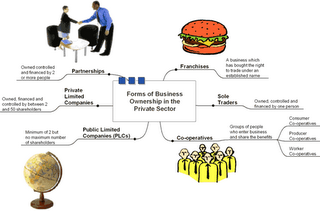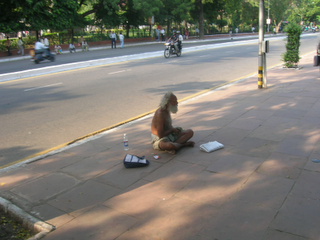Here is a very interesting link to measuring performance and its results:
http://www.joelonsoftware.com/news/20020715.html
It is already common knowledge that whatever metrics (goals) you put in place, people will work towards maximizing that particular goal. Having several goals initially creates a lot of confusion and discussion about the weight of each, but eventually this settles and creates a certain "culture", which you could consider as a weighting of the objectives of that group of people.
A proper means of measurement has everything to do with renumeration models:
A renumeration model for distributed development
Setting a single and individual goal for productivity will fail. People will refuse to work together, there is absolutely no cohesion in the team, only competition. Beyond this not being a 'fun' place to work, it is very stressful and breeds backstabbers. So we need a complementary force to pull the team together. Some competition is good (as it 'advances', but it cannot outperform the need to collaborate).
( There is also some more information on Joel's blog about incentives. )
In the future I believe that the "an-hour-a-dollar" system of renumeration will eventually wane away. Simple because more people will (want to) work at home, collaboration becomes possible with enormous installations of fibre around the world and there is no sense creating a huge, expensive office infrastructure when you spend only a fraction of that cost to develop one's home office.
Fiber installation in Iceland
The traditional hour-measurement systems, if installed at home, can easily be circumvented and cheated. So there is a need for a set of personal and group objectives with appropriate weights, tied together in a renumeration system. Maybe group objectives are better explained as "individual penalties".
You need to reward people that pull the team forward (individual objective), but you cannot reward people that leave the worst work to others (group objective). You cannot penalize a group when one worker leaves much to be desired (group objective), but you cannot penalize newcomers straight from university from not performing too well (individual objective).
In my previous post I discussed the possibility to tie company profit into this system of renumeration (making company profit have an effect on 'salary')
The reasons?
"Having a job" is the most wonderful thing in the world. There is no stress involved if you compare this to actually owning a company. Maybe the knowledge workers of today, consistently aiming at more benefits should feel obliged to share at least some of the burden of finding a proper path for your company to grow. Either through a negative incentive or through a positive renumeration?
The other thing is that it puts more pressures on companies to leave work behind that is simply not productive. You'll be amazed how much is still being done nowadays that does not contribute to a final product. In theory, such a tie with profit would make the company much more flexible and the human capital organizes itself better. But I guess only when it decreases salary. There are some schemes for profit sharing, but this is on top of the guaranteed salary, so the incentive to aim for it is much lower.
New tool in town: KnowledgeGenes.com
16 years ago








